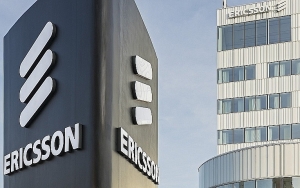5G opportunities for domestic and global businesses
As of July, the Ministry of Information and Communications has issued frequency licences to three major mobile network operators (MNOs) – Viettel, VNPT, and MobiFone – for the deployment of 5G networks. This milestone event marks a significant leap in Vietnam’s digital infrastructure, catering to future ultra-wideband requirements. Despite the push towards 5G, operators are concurrently enhancing the quality of their 4G networks, which remain central to their current operations and revenue streams.
 |
| Hoang Viet Tien, deputy secretary general Vietnam Digital Communication Association |
5G is expected to yield substantial benefits, including a tenfold increase in network capacity and a 30 per cent reduction in energy consumption compared to previous generations. With Vietnam’s burgeoning data traffic, 5G promises to meet growing demands efficiently, thereby reducing energy costs significantly.
Central to Vietnam’s strategy is its focus on digital transformation to bolster the digital economy. By 2025, the aim is for Vietnam’s digital economy to surpass $45 billion, constituting about 20 per cent of the national GDP, with projections to increase to 30 per cent by 2030. Globally, approximately 235 network operators have commenced 5G deployments.
In May, Deputy Prime Minister Le Minh Khai outlined eleven key tasks and strategies for the future, which include accelerating digital infrastructure development, expediting the commercial operation of 5G infrastructure, bolstering data centre infrastructure, and much more. The deployment of 5G stands as a cornerstone in Vietnam’s national digital transformation agenda through 2025, with a vision extending to 2030.
Compared to its predecessors, 5G offers enhanced data throughput, reduced energy consumption, and supports advanced technologies such as AI, Internet of Things, and ultra-low latency applications. It is anticipated that 5G networks will consume approximately 10 times less energy than 4G, thus contributing to the creation of a sustainable and energy-efficient digital ecosystem.
According to Qualcomm, global economic benefits from 5G are projected to reach $13.1 trillion and generate 22.8 million new jobs by 2035, impacting industries ranging from manufacturing and healthcare to education. In the Asia-Pacific region alone, 5G is anticipated to generate economic value exceeding $113 billion by 2030. A recent study by the National Institute of Information and Communications Strategy forecasts that by 2025, 5G will contribute 7.34 per cent to Vietnam’s GDP growth.
Domestic enterprises and foreign-invested firms are actively collaborating with MNOs to explore various 5G business models implemented globally and in the region. Across the globe, 5G is being leveraged for applications ranging from industrial automation to smart seaports and national security.
In many parts of the world, MNOs have increasingly adopted 5G for fixed wireless broadband access, circumventing challenges associated with deploying fibre-optic cables or establishing connectivity in rural areas. This approach has markedly improved connectivity and accessibility, enabling millions previously unable to connect to access high-quality digital services.
Looking ahead, the convergence of 4G and 5G technologies is expected to synergise, with 4G remaining pivotal in the short term while transitioning gradually to 5G. The speed and capabilities of 5G are essential for tackling challenges posed by new and emerging tech, thereby underscoring the imperative of timely 5G development in advancing technological innovation and societal progress.
The commercialisation of 5G is poised to unlock new revenue streams for MNOs. Furthermore, 5G deployment presents opportunities for telecommunications equipment providers and support businesses to tap into new customer segments and expand revenue streams. This prospect has sparked considerable interest among foreign-led groups.
Recent developments in the market highlight local MNOs’ collaborative efforts through agreements to share 5G infrastructure and partnerships with developers and service providers specialising in 5G network infrastructure. Industry leaders such as Ericsson, Intel, Qualcomm, and Amazon Web Services (AWS) are actively vying to capitalise.
Ericsson, leveraging three decades of tech leadership in Vietnam, has been pivotal in driving digital transformation across the country. Through its networks, Ericsson has connected communities nationwide, empowering industries and catalysing Vietnam’s evolution into a vibrant digital economy. The company continues to collaborate closely with MNOs and service providers to fortify critical infrastructure, integral to realising the government’s vision.
Celebrating a quarter-century in Vietnam, Huawei has cultivated an extensive ecosystem of over 200 local partners, supported five major telecom carriers, and served more than 400 enterprise clients.
Nokia has forged partnerships with leading communication service providers in Vietnam, laying the groundwork for sustained 5G expansion through the deployment of base stations and collaborative initiatives. The company is currently collaborating with a local provider to prepare ports, residential areas, and businesses for widespread 5G adoption.
AWS has bolstered its footprint in Vietnam since establishing legal entities in Ho Chi Minh City in 2017 and Hanoi in 2019. The company’s expanding network of partners spans major Vietnamese corporations like Masan Group and VietJet Air, along with financial institutions such as VIB, Techcombank, and VPBank. AWS’s strategy centres on substantial investments in nurturing local talent and expanding infrastructure.
To ensure the successful commercialisation of 5G in Vietnam and enhance its appeal, several critical prerequisites must be met. These include substantial investments in infrastructure, streamlined regulatory frameworks, emulation of successful use cases adapted to local contexts, and other essential factors.
 | 5G opportunities opening for enterprises in Vietnam Ericsson is working with mobile service providers to ensure Vietnam is at the forefront of 5G developments. Rita Mokbel, head of Ericsson Vietnam, discussed with VIR’s Bich Thuy how the group’s strengthened portfolio and global experiences can accelerate the 5G journey of enterprises in Vietnam. |
 | 5G subscriptions in Asia Pacific continue to grow Consumers in Asia Pacific continue to migrate to 5G, with the increase in subscriptions being driven by more affordable devices, promotional plans, discounts, and large data bundles from service providers, according to the latest edition of the Ericsson Mobility Report released on June 27. |
 | Germany to ban Chinese telecom giants from 5G network Germany said Thursday it will phase out the use of components from Chinese telecom giants Huawei and ZTE in its 5G networks in the coming years due to national security concerns. |
What the stars mean:
★ Poor ★ ★ Promising ★★★ Good ★★★★ Very good ★★★★★ Exceptional
Related Contents
Latest News
More News
- Citi economists project robust Vietnam economic growth in 2026 (February 14, 2026 | 18:00)
- Sustaining high growth must be balanced in stable manner (February 14, 2026 | 09:00)
- From 5G to 6G: how AI is shaping Vietnam’s path to digital leadership (February 13, 2026 | 10:59)
- Cooperation must align with Vietnam’s long-term ambitions (February 13, 2026 | 09:00)
- Need-to-know aspects ahead of AI law (February 13, 2026 | 08:00)
- Legalities to early operations for Vietnam’s IFC (February 11, 2026 | 12:17)
- Foreign-language trademarks gain traction in Vietnam (February 06, 2026 | 09:26)
- Offshore structuring and the Singapore holding route (February 02, 2026 | 10:39)
- Vietnam enters new development era: Russian scholar (January 25, 2026 | 10:08)
- 14th National Party Congress marks new era, expands Vietnam’s global role: Australian scholar (January 25, 2026 | 09:54)

 Tag:
Tag:



















 Mobile Version
Mobile Version